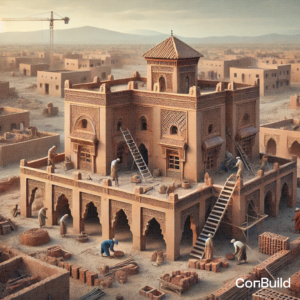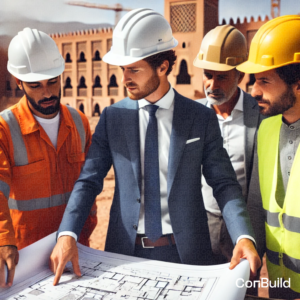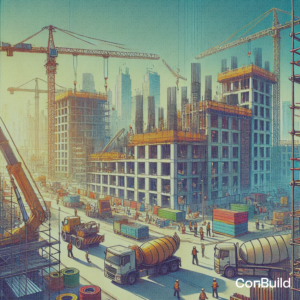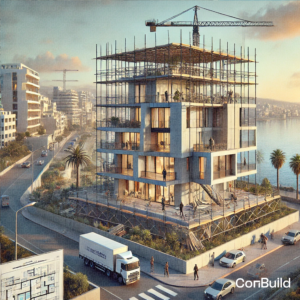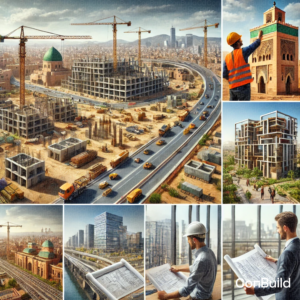❓ Are you considering building or investing in real estate in Morocco? What challenges or questions do you have about the construction process?
How Construction Works in Morocco 🇲🇦🏗️
Morocco’s construction industry is one of the most dynamic sectors in the country, contributing significantly to economic growth and infrastructure development. Whether you’re planning to build a house, invest in real estate, or understand how major projects are developed, knowing how construction works in Morocco is essential.
1. Construction Regulations & Permits 🏛️📜
Before any construction project begins, it must comply with Moroccan urban planning laws and building regulations. The process involves:
✅ Obtaining a Construction Permit – Issued by the local Commune or Municipality, ensuring compliance with zoning and safety laws.
✅ Environmental & Safety Standards – Larger projects may require environmental impact assessments and approval from regulatory authorities.
✅ Architectural & Engineering Approvals – Plans must be reviewed by certified architects and engineers before approval.
2. Key Players in the Construction Industry 👷♂️🏗️
Several professionals and institutions are involved in Moroccan construction projects, including:
🏢 Government Authorities – Oversee permits, urban planning, and safety regulations.
📝 Architects & Engineers – Design the structure and ensure its stability.
🏗️ Construction Companies & Contractors – Execute the building work.
💰 Investors & Real Estate Developers – Finance and manage projects.
For large-scale projects, public-private partnerships (PPPs) are common, especially in infrastructure development.
3. Construction Materials & Techniques 🏠🔨
Moroccan construction relies on both traditional and modern materials:
🟤 Traditional Materials – Brick, clay, and stone are often used in rural or historical buildings.
🏗️ Modern Materials – Concrete, steel, and glass dominate urban developments.
🌍 Eco-Friendly Innovations – The use of solar panels, sustainable materials, and energy-efficient designs is increasing.
4. Costs & Timeframe ⏳💰
The cost of construction in Morocco depends on location, materials, and labor. Some key factors include:
📍 Urban vs. Rural – Building in cities like Casablanca or Rabat is more expensive than in rural areas.
💸 Material Costs – Fluctuate based on supply chains and economic conditions.
🛠️ Construction Time – Small houses may take 6-12 months, while larger projects can take years.
5. Future of Construction in Morocco 🚀🏗️
The Moroccan government is investing heavily in:
🚆 Infrastructure Projects – Highways, railways (like the high-speed train Al Boraq), and smart cities.
🏠 Affordable Housing – Programs to support middle-class and low-income families.
🌱 Sustainable Construction – Eco-friendly initiatives to promote green buildings.
Conclusion
Construction in Morocco is a regulated and structured process that involves multiple approvals, skilled professionals, and various material choices. Whether you’re a homeowner, investor, or developer, understanding these steps can help you navigate the building process efficiently.
❓ What are your thoughts on the future of construction in Morocco? Do you see more opportunities in sustainable and smart building projects?
